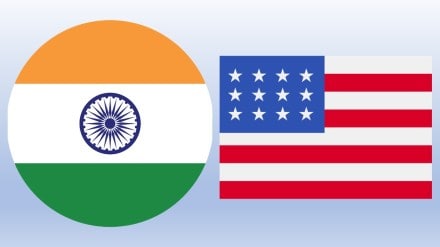By Kanishk Gaur
As the world eagerly anticipates the meeting between the US President Joe Biden and the Indian Prime Minister Narendra Modi on 22 June the stage is set for a potentially transformative dialogue between leaders of the two largest democracies. It is expected that the two world leaders would explore new frontiers in high-tech, emerging technology, and defence tech, with a special focus on cybersecurity, especially considering the fact that both countries have borne the brunt of cyberattacks in the past. The meeting is a testament to the shared commitment of both nations to leverage technology for national security, economic prosperity and global peace.
Emerging Technologies: The New Frontier
In an era marked by rapid technological advancements, the US and India can leverage their respective strengths to foster innovation and growth. High-tech and emerging technologies, such as artificial intelligence, quantum computing, cloud technology, data privacy, Internet of Things (IoT) and Operational Technology (OT), are reshaping the global landscape. The Biden-Modi meeting could pave the way for collaborative initiatives in these fields, thereby fostering innovation and creating opportunities for economic growth and job creation.
Artificial Intelligence (AI) is slowly but steadily impacting every aspect of our lives, including the way we run businesses. Given that both countries are pioneers in the field of scientific development, US and India can collaborate on AI research and development, share best practices, and develop ethical guidelines for AI use. Such a collaboration, in the said field, among other things will lead to further development of AI.
Quantum computing is another emerging field and has the potential to revolutionize computing. That said quantum computing can have significant implications for cryptography and cybersecurity. A joint effort in quantum research could place both nations at the forefront of this technological revolution.
Cloud technology and data privacy are increasingly intertwined. As more data moves to the cloud, ensuring the privacy and security of this data is paramount. The US and India could work together to develop secure cloud infrastructure and establish robust data privacy regulations.
The Internet of Things (IoT) and Operational Technology (OT) are transforming everything from manufacturing to urban planning, especially for Smart Cities programmes in India and US Smart Grids. However, they also present new security challenges. Collaborative efforts in these areas could lead to the development of secure, efficient, and sustainable IoT and OT systems.
Defence Tech is another area where both countries can significantly benefit from collaboration. With shared concerns about regional security and stability, the two nations could explore joint development and production of defence equipment, technology transfer and collaboration in research and development.
Also read: Modi US visit: Date, time, full schedule of events – All you need to know
Cybersecurity: Tackling Shared Challenges
In the face of escalating cyber threats, cybersecurity is expected to be a key focus area of the Biden-Modi meeting. Both nations have experienced major cyberattacks in recent years, underscoring the need for robust cybersecurity measures. By collaborating in this domain, the US and India can enhance their cyber defences, share best practices, and work towards establishing global norms for responsible state behaviour in cyberspace.
Space Tech: Expanding Horizons
The collaboration also extends to space technology, particularly the use of satellites for Internet access. As the world becomes increasingly digital, ensuring universal access to the Internet is a key challenge. By collaborating in space technology, the US and India can work towards bridging the digital divide and fostering digital inclusion.
Addressing the Chinese Threat
The rise of China as a global tech powerhouse presents both opportunities and challenges. While economic engagement with China has benefits, concerns about technology theft, cyber espionage, and the potential misuse of technology for authoritarian ends are significant. The Biden-Modi meeting could explore strategies for managing the China challenge, including diversifying supply chains, enhancing cybersecurity, and promoting democratic norms in technology governance.
Countering Terrorism and Extremism
Terrorism and extremism remain significant threats to global peace and security. The US and India, both victims of terrorism, can collaborate on counter-terrorism efforts, sharing intelligence and best practices. The role of technology in countering terrorism, from surveillance technologies to online counter-radicalization efforts, could be a key area of cooperation.
Also read: Modi-Biden talks to touch five broad areas of significance, says Ambassador Sandhu
Forging New Partnerships: The Case of Taiwan
The US and India can also explore new partnerships to counterbalance China’s influence. Taiwan, a vibrant democracy and tech powerhouse, could be a potential partner. Closer ties with Taiwan could enhance India’s tech capabilities and contribute to a free and open Indo-Pacific.
The QUAD and Maritime Security
The Quadrilateral Security Dialogue (QUAD), comprising the US, India, Japan, and Australia, is a crucial platform for maintaining a free and open Indo-Pacific. The Biden-Modi meeting could explore ways to strengthen the QUAD, from joint naval exercises to technology sharing. Maritime security, particularly in the South China Sea, is a shared concern. The US and India can collaborate to ensure freedom of navigation and overflight, uphold international law, and maintain unimpeded lawful commerce.
Conclusion: A Partnership for the Future
The upcoming Biden-Modi meeting holds immense potential for shaping the future of US-India relations. By focusing on high-tech, emerging technology, and defence tech, the leaders can lay the groundwork for a partnership that not only enhances their national security and economic prosperity but also contributes to global peace and stability. As they prepare to meet, the world watches with anticipation, hopeful for a new chapter in US-India collaboration.
(Kanishk Gaur is a renowned cybersecurity, public policy, government affairs specialist, and digital technology expert, and founder – India Future Foundation. Views are personal.)
